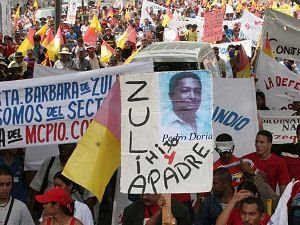 In writing about ‘bridge-building leadership’ Mark Gerzon tells this story:
In writing about ‘bridge-building leadership’ Mark Gerzon tells this story:When Palestinian president Mahmoud Abbas and Israeli prime minister Ariel Sharon met in early 2005 in the Red Sea town of Sharmel-Sheik, Photographs flashed through global media and cyberspace of these two gray-haired adversaries shaking hands across a table. What the photographs did not show, however, were the two other men seated at the table who helped make the handshake possible: Egyptian president Hosni Mubarak and King Abdullah II of Jordan.
The cameras were naturally pointed at the leaders from the two opposing sides, not at the "third side" that had helped to build that they could cross. Would the meeting lead, ultimately, to enduring peace? Would the two statesmen, supported by two more, create a new road map for reconciliation? Would this bridge lead to genuine, sustained innovation? In both this conflict and many others, the answers to these questions are not predetermined. They depend, in part, on how strong the bridge is on which the adversaries are standing. Only Abbas’s and Sharon’s peers, two fellow heads of state, were strong enough to bring them to the table.
Mark Gerzon, Leading Through Conflict: How Successful Leaders Transform Differences into Opportunities, Boston: Harvard Business School Press, 196-197.
Image: King Abdullah II of Jordan and Hosni Mubarak.
 Two leaders, in similar positions, can deal with conflict in very different ways. This is true in every conflict, whether the stakeholders are highly educated university officials or uneducated peasants.
Two leaders, in similar positions, can deal with conflict in very different ways. This is true in every conflict, whether the stakeholders are highly educated university officials or uneducated peasants.
